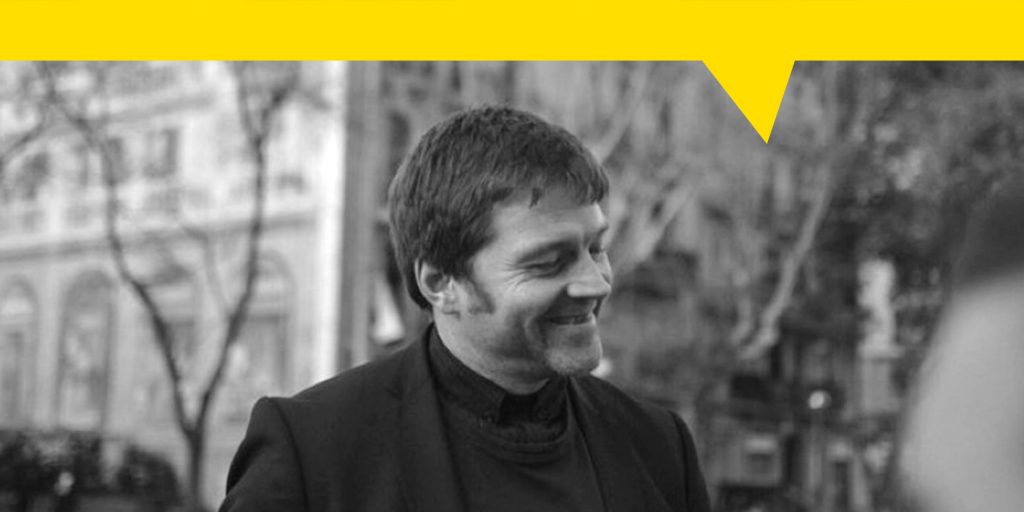And so here we are, on the other side, emerging bleary eyed and tentatively feeling our way into the first few weeks of a Corona-clad New Year. 2021 will be a year of recovery, of rebooting national economies and jobs markets, a year of transitioning towards brighter skies, pumped up to the eyeballs on Moderna meds and Pfizer juice.
Surely…
As we beckon with imploring, trembling hands towards the shimmering post-Covid shore, 2021 will be a year to reflect and take stock of some of the lasting legacies of the crisis. And nowhere will the need for reflection be more pertinent than on the short and longer term impact of the pandemic on the workplace and on jobs.
Over the last six months or so I have had the opportunity to exchange views with business leaders, employer organisations and employment experts across the globe through the projects I have led for the International Labour Organization (ILO) and the World Employment Confederation (WEC). The aggregated feedback has mapped out five potential forces of post-pandemic change to how and where we work:
- Driving the great jobs ‘reset’ – 400 million full time jobs were lost in the second quarter of 2020, according to the ILO. Across the world, national governments will be looking for new solutions for rebooting jobs markets in 2021. Helping individuals in the hardest hit sectors to access opportunities in sectors and roles where demand for staff remains strong is a priority in most countries. Over 57 million people a year are placed into work by private sector employment agencies globally; harnessing this contribution must for part of the great jobs reset.
- Creating new careers causeways – According to the World Economic Forum (WEF), 85 million jobs will be displaced by 2025. In the words of WEF’s Saadia Zahidi: “We need a long-term focus on education policy, but the immediate priority is retraining and reskilling”. How can we make 2021 a year of tangible progress on facilitating transitions? Driving real change in employer hiring procedures and tapping into the expertise of recruitment professionals must be in the mix. Building on ground-breaking initiatives such as the ‘Career Causeways’ project led by the innovation foundation NESTA is also a way to go.
- Prioritising safety and well-being – The ILO estimates that 2.7 billion workers, representing 81 per cent of the global workforce, were affected by initial lockdown measures. Alongside mitigating job losses and leading reskilling initiatives, navigating safe returns to the workplace and managing well-being (including mental health) of workers will remain a priority in 2021. Many employers will need help to implement effective measures; providing this support – and ensuring that it covers all workers including temporary and contract staff – was at the heart of the WEC’s Alliance Taskforce project. The stakes are high. In the words of Brian Kropp VP of research at Gartner: “The way businesses manage this crisis will define their employer brand and future success”.
- Making change happen on equality – For employers around the world, 2021 is the year for moving beyond positive intentions to make tangible change happen on equality and diversity. Enhancing inclusive recruitment procedures and addressing latent barriers to progression are just two of the levers. Speaking on the BFI 2020 Race Equality Summit , Dr Sola Adesola from Oxford Brookes Business School underlined the point that “creating a truly inclusive and diverse workplace often involve deep-rooted culture change”. The hope is that 2021 will be a year of building momentum and of accelerating a virtuous cycle: Culture change leading to increased diversity and increased diversity reenforcing culture change in workplaces around the world.
5. Re-imagining the ‘work experience’ – According to the Mercer Global Talent Trends Report, 57% of organisations are currently redesigning the whole ‘work experience’ with areas such as flexibility, health and people-centricity identified as priorities. The challenge for employers in 2021 will be to ensure that this work experience revamp is sustainable and reflects the views and needs of workers. This will require innovative approaches to employee engagement and a philosophy of ‘co-creation
The first few weeks of the year have made one thing clear: there will be no plain sailing, the course is set on living with ongoing disruption for some time yet. The external climate will continue to evolve; employers around the world need to be braced and ready to navigate the next leg of the pandemic passage as we (hopefully) head towards calmer seas. But, in the words of Marcel Proust “the real voyage of discovery consists not in seeking new landscapes but in having new eyes”. Wherever we end up over the coming months, there is no time to lose in taking a fresh look at game-changing areas that were priorities even before the crisis such as inclusion, well-being, flexible work and future skills.
2021 will be a workplace odyssey; let’s make the most of the journey and set our compass on a post-pandemic world of work that is anchored on bringing the best out of business and meeting the aspirations and needs of individuals.

